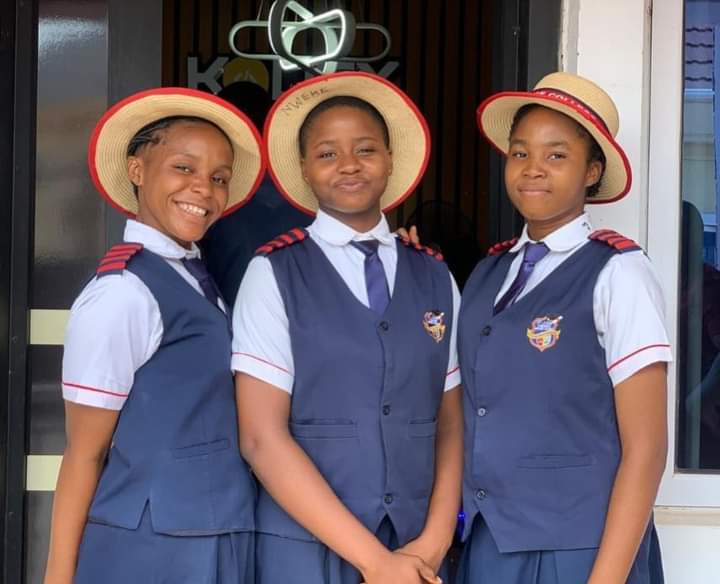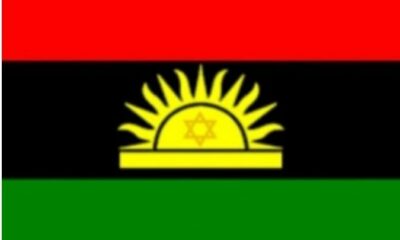Tech
[BREAKING] pawaPay Closes on Seed Funding of $9M


African payments company pawaPay, has secured a $9m Seed raise. The round was co-led by MSA and UK-based investment fund 88mph, with participation from Vunani Capital, Kepple Ventures and Zagadat Capital. The capital will be deployed to scale pawaPay’s operational presence, find more talent to join the team, and expand into new markets on the continent.
Founded in 2020, pawaPay is focused on the mobile money infrastructure provided by telecommunications companies (telco) in Africa. Each telco in each country provides its own unique mobile money product, which makes the mobile money infrastructure as a whole – across borders and telcos – highly fragmented and opaque. For merchants, this fragmentation means that it is unnecessarily expensive to use and frustratingly unstable. Through pawaPay’s simple API, merchants can access more than 300 million customers in more than ten markets and enjoy seamless, transparent and highly reliable payments.
pawaPay’s customers are large Pan-Africa/global merchants and companies needing to make payments to African consumers’ accounts. Payments in Africa have long been made difficult by large unbanked populations, declined credit card transactions, charge-backs, fraud, dropped and lost payments, and slow cross-border settlements. The alternative financial infrastructure created by the telco-led mobile money wallets now has more than half a billion registered accounts in Africa, making it both one of the largest financial infrastructures in the world and one of the most under-developed. pawaPay has positioned itself as an industry leader in high volume mobile money payments and focuses on delivering reliability and transparency for merchants wishing to connect to the customers on the continent. With a single API, pawaPay’s customers can access all telco mobile money systems and thus receive and send payments to hundreds of millions of people. pawaPay handles local operations, compliance, regulatory cover and bank accounts, making it as simple as clicking a button to start receiving payments in a new market. pawaPay is already successfully handling millions of transactions on its rails per week and has operations in 10 countries.
Commenting on the company’s raise and growth prospects, Nikolai Barnwell, CEO of pawaPay said, “Africa’s alternative financial infrastructure is in an exciting phase with double digits CAGR everywhere. And mobile money has come out as the de facto money infrastructure for hundreds of millions of people on the continent. A quarter of the adult population is an active mobile money user. A third of all wallet holders have their salaries paid into them. We’re making a bet that this infrastructure will continue to grow and offer a superior experience than traditional financial infrastructures such as card and banking. With more than 500 million registered users on the continent – 200 million of which are active frequent users, this isn’t a fringe fad or a stepping stone to cards and swift payments. This is an example for the rest of the world of how payments could – and should look. Most of our competitors are largely focused on bank and card payments; but over the past many years we have been laser focused on addressing the unique set of challenges that accompanies specializing in mobile money. I think this gives us a good position to explore the opportunities that are coming up as this alternative financial infrastructure continues to grow.
“We are excited to have world-class investors supporting our vision to connect every mobile money wallet in Africa to each other, and the rest of the world, as we continue to make it simpler to do payments”.
Kresten Buch, Founder of 88mph, added “When we first invested in Africa in 2010, one of the key drivers was that mobile money was a superior payment method to credit and debit cards when used for online payment. So, we are excited to be an investor in pawaPay’s journey and continue to witness the development of digital infrastructure in Africa”.
Mr. Eazi, singer, songwriter, entrepreneur and Founder of Zagadat Capital, added “Being investors hugely focused on Africa and very familiar with the landscape, we believe that mobile money focused fintech is not just one of the most exciting places to invest but also one of the most important bridges to ensuring financial inclusion of the billions of people across the continent, the kicker for us was that we believe in the clear mission, vision and strategy & we are confident that the pawaPay team is the best team to achieve it”.
Tech
Anambra School Emerges Winner In National Girls In ICT Competition With Groundbreaking VR Technology


St. John Vianney Science College, Igbariam, used their virtual reality project to conquer the National Girls in ICT Competition 2024, claiming the national championship title yesterday!
The National Girls in ICT Competition, organized by the Federal Ministry of Communication, Innovation and Digital Economy, is a technology innovation competition for all girls in secondary schools across Nigeria.
Their innovative project, M-Tag VR, allows users to explore iconic landmarks like Zuma Rock and learn about fascinating cultural aspects of Nigerian tribes. The girls, Immaculate Ebube Ikegwuonu, Camilla Anyadike, and Nweke-Nonso Oluchi, mentored by their coach, John Onuigbo, triumphed over teams from all 36 states.
The girls’ talent shone brightly throughout the competition. They started at the state level where they aced the Anambra state competition, then proceeded to conquer the Southeastern regional championship, defeating teams from Ebonyi, Imo, Abia, and Enugu, to make it to the national finals.
Rivers and Lagos states secured the second and third-place positions, respectively.
Tech
Google To Delete Billions Of Browser Records To Settle ‘Incognito’ Lawsuit


CNN reported that Google will delete billions of data records as part of a settlement for a lawsuit that accused the tech giant of improperly tracking the web-browsing habits of users who thought they were browsing the internet privately.
The suit was originally filed in 2020 and accused Google of misrepresenting the kind of data it collects from users who browsed the internet via “Incognito” private browsing mode in Chrome. Google agreed to settle the suit late last year, but the terms of the settlement were first disclosed in a filing on Monday.
As part of the settlement, Google must delete “billions of data records” that reflect the private browsing activities of users in the class action suit, according to court documents filed Monday in San Francisco federal court.
Google will also update its disclosure to inform users about what data it collects each time a user initiates a private browsing session. Google has already started implementing these changes.
For the next five years, Google will also let private browsing users block third-party cookies as part of the settlement. Google also will no longer track people’s choices to browse the internet privately.
Tech
NIN-SIM Linkage: NCC Directs Telecommunication Operators To Bar Non-Compliant Subscribers


The Nigerian Communications Commission (NCC) has confirmed that it would not be reviewing its deadline to bar owners of more than four SIM cards whose SIM registration data failed to match their National Identity Number (NIN) data.
A source within the Commission explained that the Commission’s position was hinged on its objective to clean the country’s SIM ownership database, and ensure that criminals could not take advantage of having multiple unlinked SIMs to carry out their nefarious activities.
“We are not standing back on our decision. March 29th is sacrosanct. Our resolve is hinged on the need to close in on the chaos of untoward ownership of multiple SIM cards with unverified NIN details. We have instances where a single individual has over 10,000 lines linked to his NIN. In some cases, we have seen a single person with 1,000 lines, some 3,000 plus lines. What are they doing with these lines?
“From our interim findings, the owners of these lines did not purchase them for decent purposes or to undertake legitimate activities.
“We have given them enough time to make the decision of which of their lines they want to keep, and discard the others. They did not. All lines in this category with unverified NINs will be barred. They will be then expected to go to their operators and decide which of the lines they want to keep, as well as submit correct NIN details.
“Some people would say they want to use it for car trackers, or for IoTs, but provision has been made for these services already. They are not under the ‘Max-4 Rule.’
“Across the world, no country allows you to have 1,000 SIM cards to make calls or texts.”
The Max-4 Rule announced by the Federal Government in April 2021 provides that telecom subscribers cannot have more than four lines per mobile network operator.
The NCC has also provided Mobile Network Operators (MNOs) an extension till July 31st 2024 within which they are expected to verify all NINs submitted by subscribers with four (4) or less SIMs, as well as bar those whose NIN fail verification with NIMC.
An authoritative source within the Commission who is familiar with the matter stated that the Commission’s management arrived at the decision at a crucial meeting it held today to review requests from the major Mobile Network Operators requesting for extension for the verification of NINs submitted.
The source also stated that the Commission is mulling the idea to approve an online application solution for MNOs where their subscribers whose NIN verification failed due to biometric mismatch can update their records on the app, while existing subscribers can register additional lines.
-



 News5 days ago
News5 days agoAnambra State Government Arrests Man For Marrying Off His Underage Daughter
-



 News13 hours ago
News13 hours ago“80% Of Buildings In Lekki Have No Approval” – Lagos State Commissioner For Physical Planning & Urban Development Reveals
-



 News4 days ago
News4 days agoIPOB Declares May 30th As Sit-at-home Day Across The Southern East States To Honour Biafran Fallen Heroes
-



 Education3 days ago
Education3 days agoFederal Government Sets To Commence School-To-Work Scheme
-



 News2 days ago
News2 days agoLady Dies After Friends Pushed Her Into Boiling Pot Of Fresh Pepper In Delta State
-



 Finance2 days ago
Finance2 days agoEFCC Chairman Tasks Nigerian Youths Against Crimes And Fraudulent Acts
-



 Entertainment14 hours ago
Entertainment14 hours agoCelebrities Turn Up For The Dedication Of Ali Baba’s Triplets In Lagos
-



 TechNews11 hours ago
TechNews11 hours agoSIM Boxing, And The Unboxing of a Crime Syndicate






